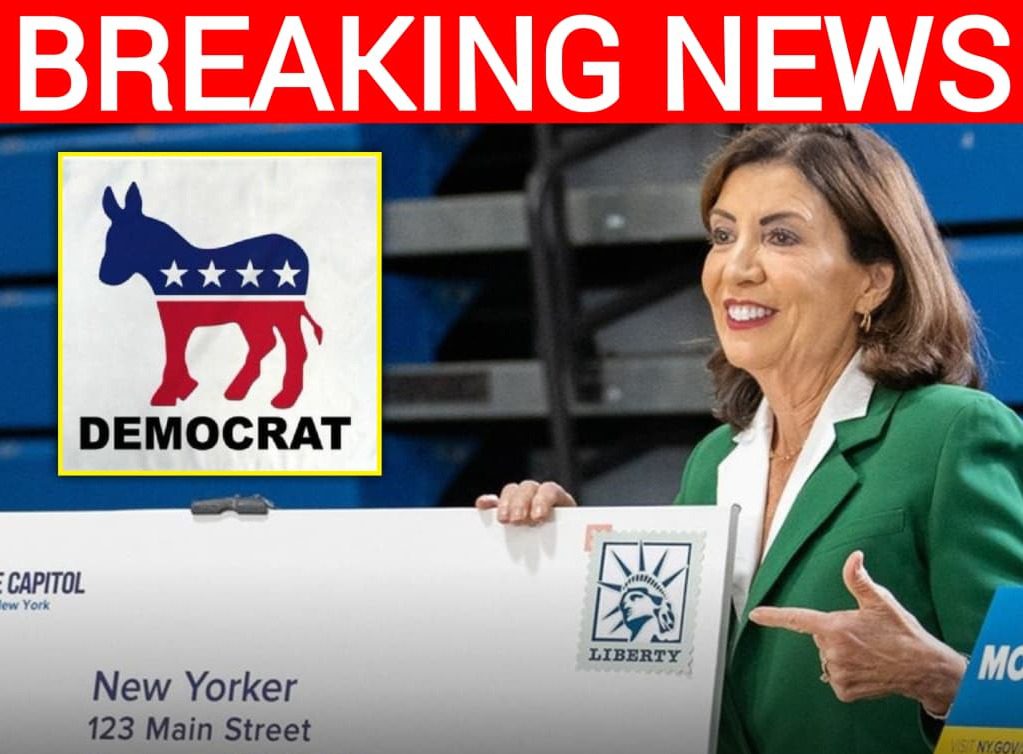Governor Kathy Hochul’s $400 inflation refund checks spark outrage as critics call it potential election vote-buying scheme
New York Governor Kathy Hochul has announced that inflation refund checks of up to $400 are being mailed out to 8.2 million New York households. On the surface, it looks like a relief plan designed to help families deal with the soaring costs of groceries, utilities, and housing. But the timing of the announcement, coming just as the political season heats up, is already raising eyebrows across the state and beyond. Critics are questioning whether this is truly a policy meant to support struggling families or if it is a carefully designed political maneuver to boost her approval and tilt voter sentiment ahead of critical elections.
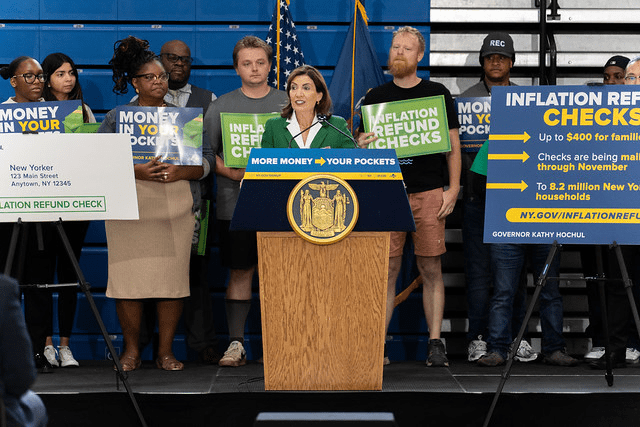
The governor framed the initiative as a way to return surplus state revenues back to taxpayers who have been hit hardest by inflation. The idea is simple: residents who qualify will start receiving refund checks in their mailboxes, giving them immediate cash relief in a tough economy. For some families, the $400 may cover a week of groceries or an overdue utility bill, and that short-term benefit is undeniable. But while Hochul insists that this is about fairness and relief, opponents believe it crosses into dangerous political territory.
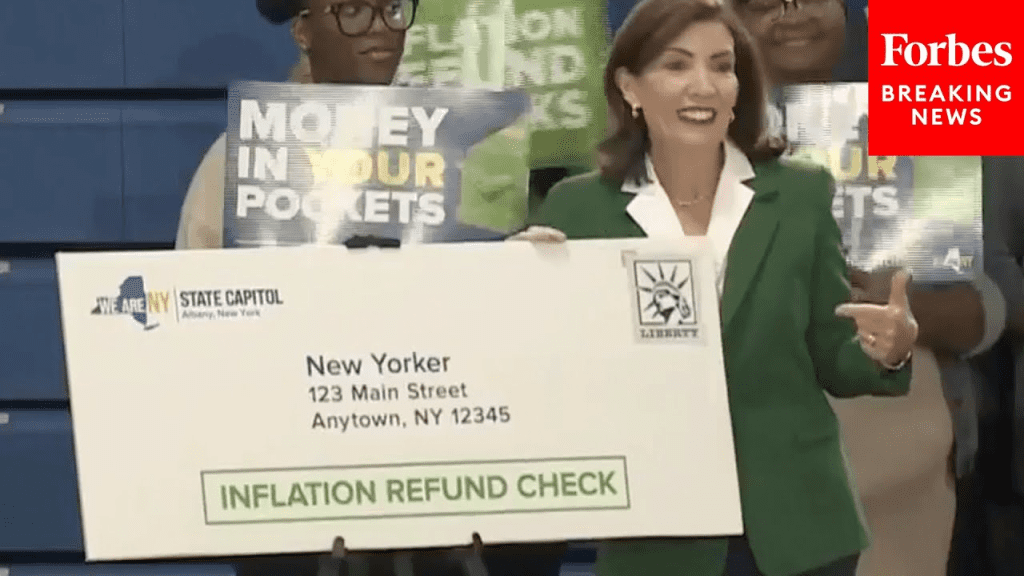
Concerns are mounting that this program may resemble vote-buying, a tactic often associated with political corruption and manipulation. By mailing checks directly to millions of households at a moment when political campaigns are ramping up, the measure blurs the line between public service and electoral advantage. Some critics have already suggested the Department of Justice should investigate the move to ensure that it doesn’t amount to using state resources to sway an election.
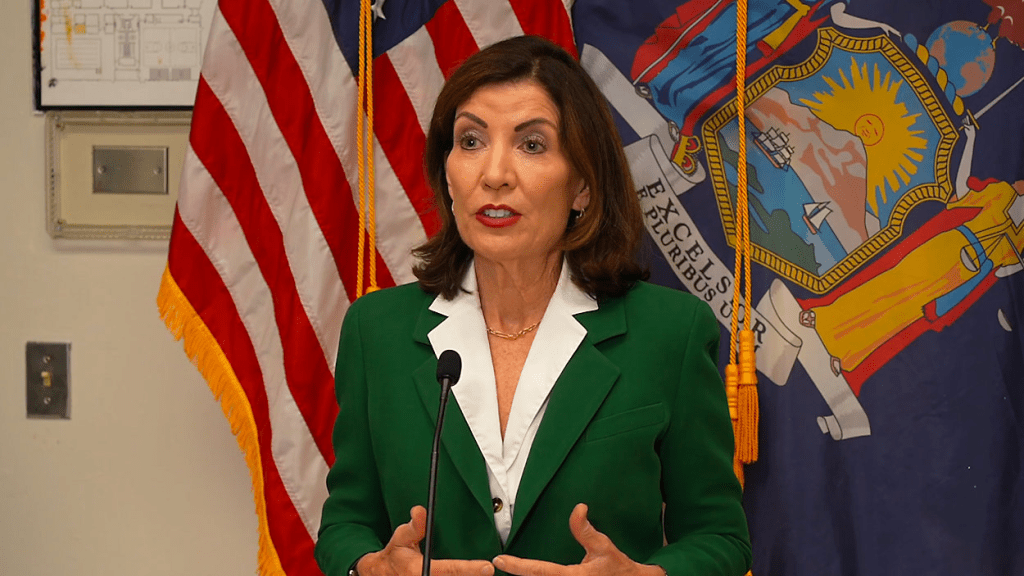
This isn’t the first time financial incentives have been questioned in politics. Historical cases like the 2006 Supreme Court battle McConnell v. FEC highlighted how money can be wielded as a political weapon, whether through campaign finance or state spending. The context here feels uncomfortably similar to many observers, particularly given the sheer scale of the program and its timing. With over $3 billion in state funds potentially being distributed, the question of political motivation is unavoidable.
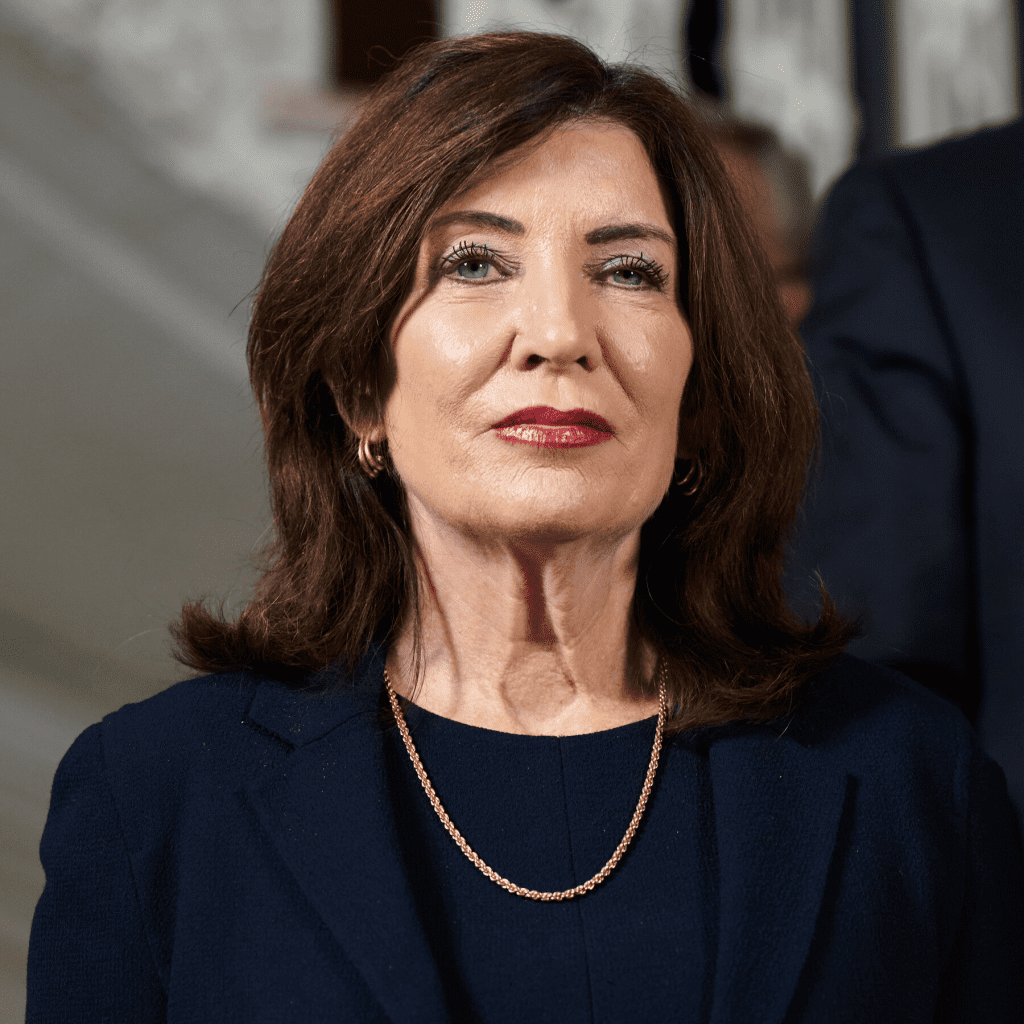
It’s important to note that there is no direct evidence yet linking Hochul’s program to an election strategy, and her office has strongly denied any such intentions. Still, the optics are hard to ignore. At a time when trust in government is already fragile, actions like these tend to fuel skepticism. People are left wondering if the relief is truly about economic hardship or if it is another example of politicians leveraging state resources to secure their future in office.
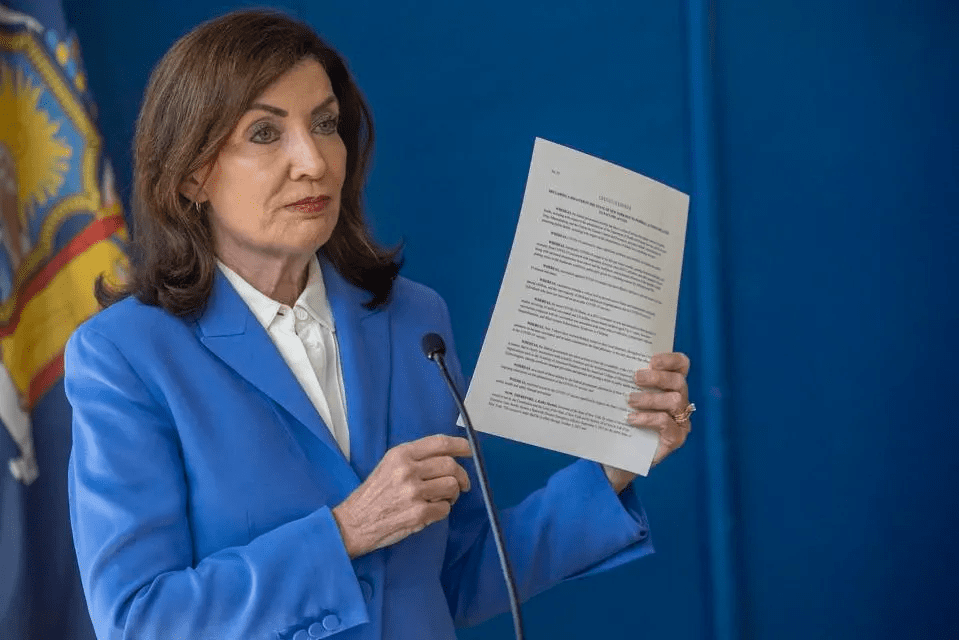
The reaction from New Yorkers themselves has been divided. Some residents say the check couldn’t come at a better time, as they are already stretched thin with rent, food, and gas prices all higher than before. Others are openly cynical, seeing the payments as a hollow gesture designed for headlines rather than real change. The reality is that $400 may help for a moment, but it won’t solve the deeper structural problems causing the state’s economic strain.
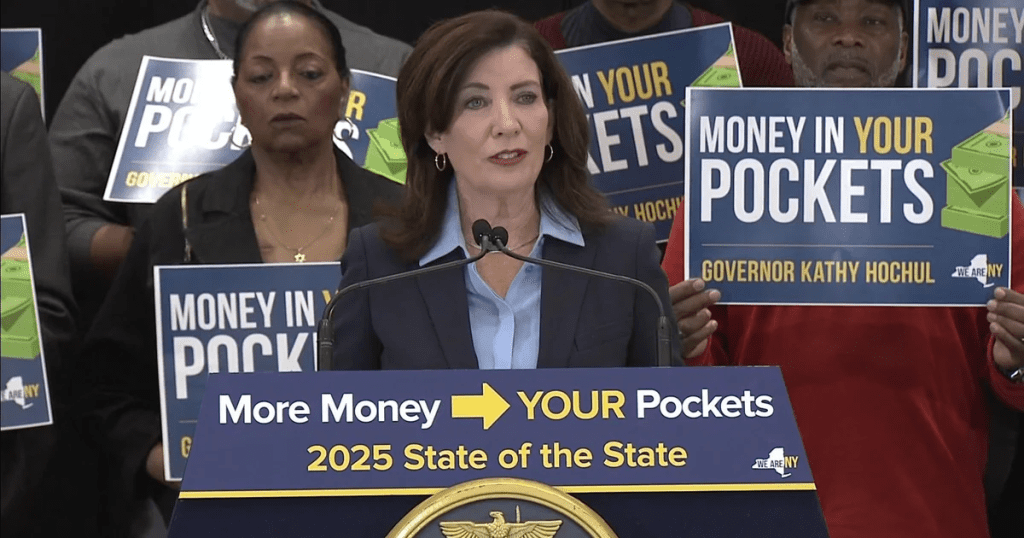
This controversy lands in a broader political climate where financial influence and campaign spending are under greater scrutiny than ever. According to the Federal Election Commission, Democrats’ spending in 2024 reached nearly $1.8 billion on presidential campaigns alone, proving just how powerful money has become in shaping political narratives. Hochul’s refund plan, regardless of intent, now finds itself wrapped up in that same conversation.
For now, the checks are moving forward, and millions of households will benefit from them in the short term. But the political debate over their purpose is only just beginning. Whether history views this as a well-meaning relief effort or a questionable attempt to buy goodwill before elections remains to be seen. What is certain is that the timing ensures this story won’t disappear quietly.
